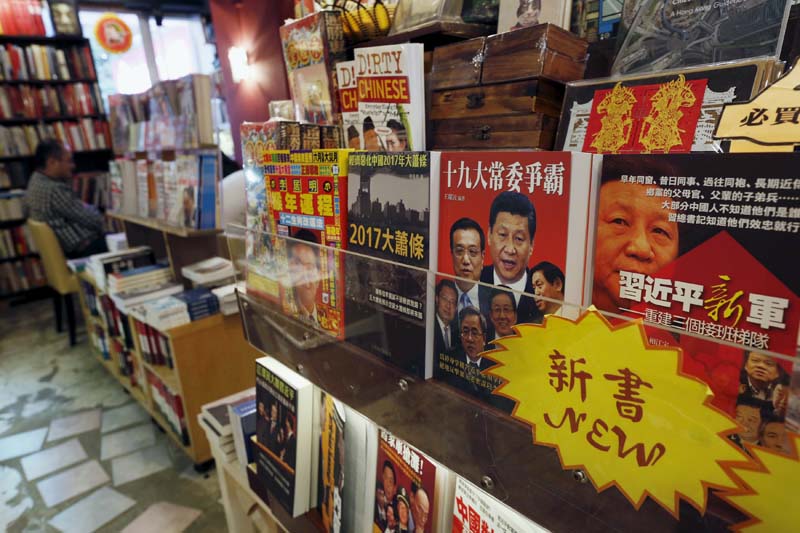Hong Kong publishers spooked, anti-China books off shelves
HONG KONG: Hong Kong publishers and vendors of books on Chinese politics that are banned in China are unnerved by the mysterious disappearances of five booksellers, and in some cases pulling books critical of Beijing's leaders from their shelves.
In three bookstores selling political books visited by Reuters, owners declined to be publicly interviewed, citing the fear of mainland anger. Hong Kong, a former British colony handed back to China in 1997, is constitutionally guaranteed freedoms and autonomy from Beijing for 50 years but the series of disappearances has led to suspicions that mainland law enforcement officers were ignoring the law.
Lee Bo (65) a shareholder of Causeway Bay Books and a British passport holder, went missing from Hong Kong in late December, although his wife has withdrawn a missing persons report saying he traveled to China voluntarily to assist in an unspecified investigation.
Four other associates of the publisher have previously been unaccounted for, since late last year.
Police said they continue to investigate and China has yet to clarify the fate of the men and whether they are in custody.
Bao Pu, a prominent publisher in Hong Kong, was openly critical of the events and said he suspected mainland officials had breached the law. His father, Bao Tong, was the most senior Chinese official jailed over the 1989 Tiananmen Square protests in Beijing.
"Nobody is safe in Hong Kong now," said Bao, who published the secret memoirs of Zhao Ziyang, a former Communist Party general secretary who was purged after the 1989 crackdown.
As of Thursday, over 500 publishers, writers, booksellers and members of the public had signed an online petition pledging to: "Not fear the white terror and uphold the principle of publication freedom". White terror is a term used to describe periods of political persecution by authoritarian regimes.
Britain and the United States have expressed concern about the disappearances.
China's Foreign Minister Wang Yi skirted a direct question on whether the men were under Chinese detention at a recent press conference. The Guangdong and Shenzhen Public Security Bureaux, and the Hong Kong and Macau Affairs Office in Beijing, have not responded to repeated Reuters' requests for comment.
China's state-run Global Times tabloid, however, wrote in a recent editorial that the booksellers were exercising an "evil influence" in China through their political books. The newspaper went on to say that it was "reasonable" for law enforcement agencies to "circumvent the law when they seek cooperation from an individual for investigation."






